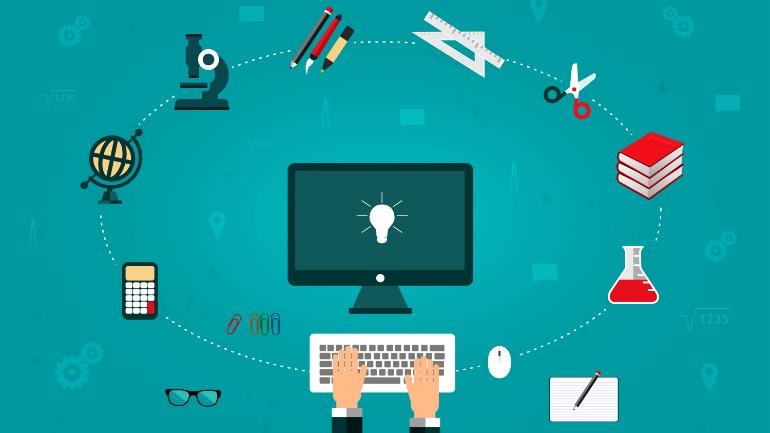Technology Is Affecting Every Major Industry Out There

Technology has been transforming the way we live and work for decades, and its impact can be seen in nearly every aspect of our lives. From healthcare to retail, technology is changing the way industries operate, creating new opportunities for growth and innovation. If you want to make the most of technology yourself, you need to learn how technology is affecting some of the world’s largest industries and the ways in which it is shaping the future. You also need to explore the benefits and challenges of technology adoption and look at the ways in which technology is changing the way we live, work, and interact, so here are some of the industries you should focus on.
Healthcare
Healthcare is one of the industries most heavily impacted by technology. From telemedicine and remote patient monitoring to digital health records and artificial intelligence, technology is changing the way healthcare is delivered and improving patient outcomes. Telemedicine, for example, allows patients to receive medical care from their homes, reducing the need for travel and increasing access to care. Remote patient monitoring allows patients with chronic conditions to be monitored from a distance, reducing the need for hospital stays and enabling early intervention in the event of a problem.
Retail
The retail industry has been transformed by technology in recent years, with e-commerce and mobile shopping leading the way. Online retail sales have been growing at a rapid pace, and traditional brick-and-mortar retailers are increasingly turning to technology to improve the customer experience and stay competitive. For example, retailers are using augmented reality to allow customers to try on clothes virtually, and artificial intelligence to personalize the shopping experience and provide recommendations based on past purchases.
Manufacturing
Technology is also changing the way goods are manufactured, with the rise of Industry 4.0 and the Internet of Things. Smart factories, which use sensors, machines, and data to automate production, are becoming more widespread, leading to increased efficiency and productivity, especially if all those people working in them are ready to use intrinsically safe devices that boost their productivity. In addition, 3D printing is enabling the production of customized products, reducing the need for large-scale manufacturing and enabling small-scale production in a variety of industries.
Transportation
The transportation industry is undergoing a major transformation, with the rise of self-driving cars, drones, and other autonomous vehicles. Self-driving cars, for example, have the potential to improve road safety and reduce the number of accidents caused by human error. They also have the potential to change the way we live and work, reducing the need for personal car ownership and enabling more efficient use of road networks.
Energy
Technology is also changing the way energy is produced, distributed, and consumed. Renewable energy sources, such as wind and solar power, are becoming increasingly cost-competitive with fossil fuels, and the use of smart grids is enabling the integration of renewable energy into the electricity grid. Additionally, energy-efficient technologies, such as LED lighting and smart homes, are reducing energy consumption and helping to combat climate change.
Communication
The communication industry is undergoing a major transformation, with the rise of 5G networks and the increasing use of smartphones and other connected devices. 5G networks will enable faster and more reliable communication, with the potential to transform a wide range of industries, from healthcare and transportation to entertainment and education. In addition, the increasing use of smartphones and other connected devices is enabling new forms of communication, such as augmented reality and virtual reality, and creating new opportunities for growth and innovation.
Education
The education industry is also undergoing a major transformation, with the rise of online learning and the increasing use of technology in the classroom. Online learning is making education more accessible, enabling students to study from anywhere and at any time. In the classroom, technology is being used to enhance the learning experience, providing students with interactive and engaging experiences and enabling teachers to tailor their lessons to the needs of individual students.
Agriculture
Agriculture is another industry that is being impacted by technology. Precision agriculture, which uses data and technology to optimize crop yields, is becoming more widespread. For example, drones equipped with sensors and cameras can be used to gather data on crop growth and soil conditions, enabling farmers to make more informed decisions about their operations. In addition, the use of automation and robotics is reducing the need for manual labor, improving efficiency and productivity, and reducing the risk of injury in the workplace.
Finance
The finance industry is also undergoing a major technological transformation, with the rise of digital currencies and blockchain technology. Digital currencies, such as Bitcoin, are disrupting the traditional banking system and enabling new forms of payment and financial transactions. Blockchain technology, which enables secure and transparent record-keeping, has the potential to transform a wide range of industries, from supply chain management to voting systems.
Technology is changing nearly all major industries, creating new opportunities for growth and innovation and transforming the way we live and work. While there are certainly challenges and risks associated with technology adoption, the benefits are clear. From improved access to care in healthcare to more efficient and sustainable energy production, technology is shaping the future and driving progress in a wide range of industries. As technology continues to evolve, it will be important for businesses and individuals to adapt and embrace the changes, to ensure that they are able to take advantage of the opportunities and meet the challenges of the digital age.